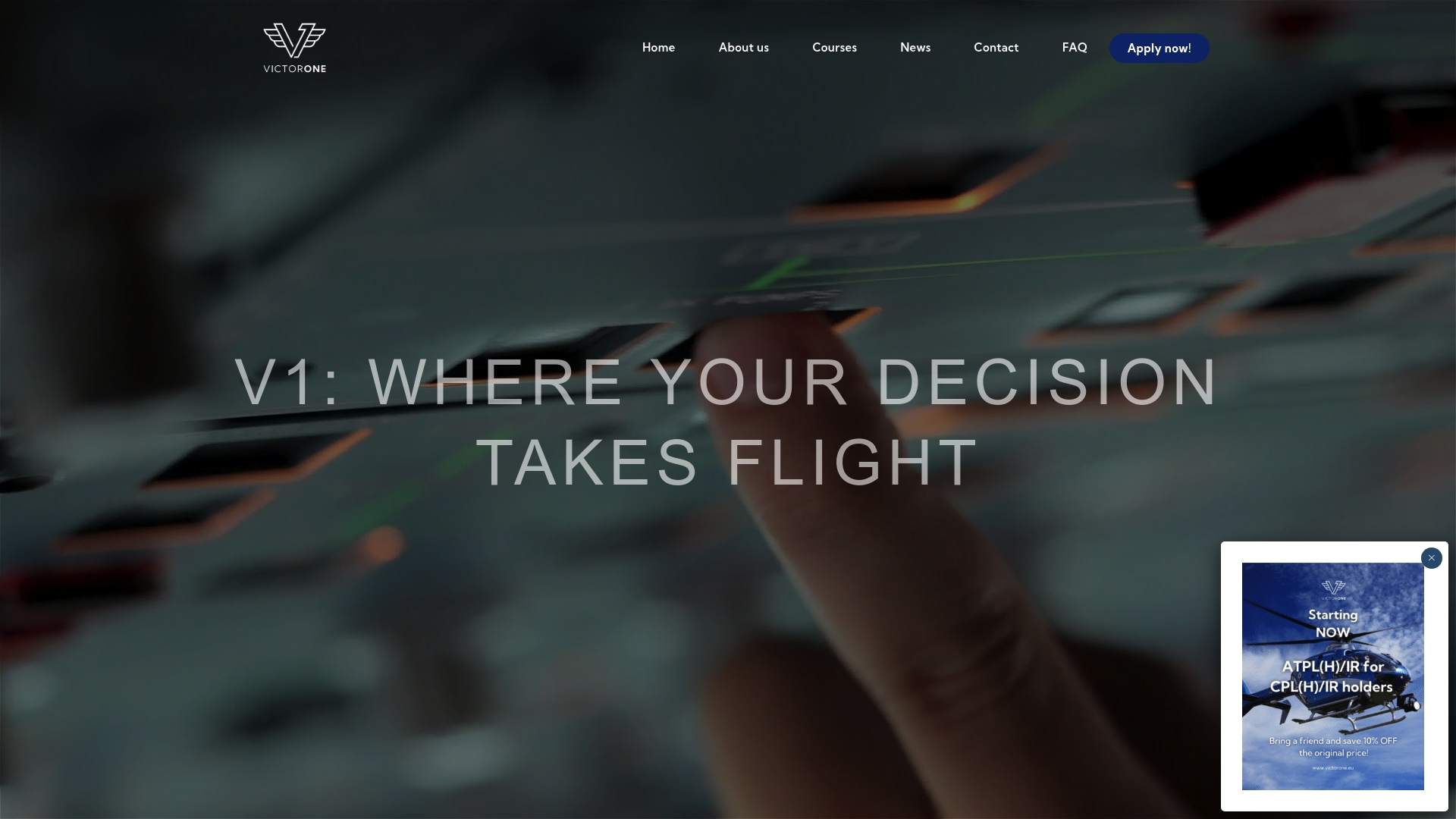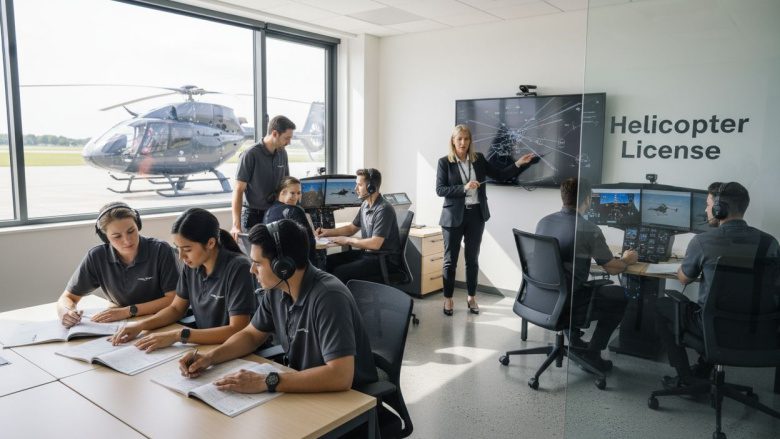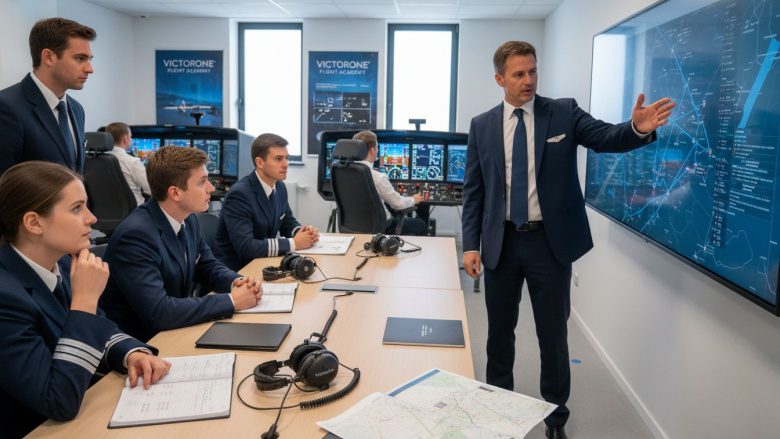Mentorship in aviation shapes careers in ways no textbook or standard training ever could. Studies show that mentorship dramatically increases a pilot’s chances of swift career advancement and confidence handling complex situations. It might sound like just another industry buzzword but professional mentoring goes much deeper in the cockpit. This kind of guidance is the hidden force that keeps safety records high, knowledge flowing between generations and new pilots rising through the ranks faster than ever.
Table of Contents
- What Mentorship Means In The Aviation Industry
- The Importance Of Having A Mentor For Aspiring Pilots
- Key Qualities To Look For In A Mentor
- Building A Connection With Your Mentor In Aviation
- How To Maintain A Mentorship Relationship Effectively
Quick Summary
| Takeaway | Explanation |
|---|---|
| Mentorship accelerates pilot career development | Mentors provide insider knowledge that significantly enhances career progression for aspiring pilots. |
| Effective mentors possess technical expertise and empathy | Ideal mentors balance deep industry knowledge with strong communication and interpersonal skills to guide mentees. |
| Regular communication is essential for mentorship success | Maintaining consistent contact fosters a productive relationship between mentor and mentee, ensuring mutual growth. |
| Set clear expectations to enhance the mentoring relationship | Defining goals and communication protocols helps establish a structured mentoring experience for both parties. |
| Demonstrate continuous learning and growth to mentors | Aspiring pilots should consistently show their development, reflecting their commitment to the mentorship process. |
What Mentorship Means in the Aviation Industry
Mentorship in aviation represents a critical professional development pathway that goes far beyond traditional training methods. Unlike standard instructional approaches, mentorship creates a nuanced learning environment where experienced professionals guide emerging talent through complex operational landscapes.
Understanding Professional Guidance in Aviation
In the aviation industry, mentorship is a structured relationship between a seasoned professional and a less experienced individual, focused on transferring specialized knowledge, technical skills, and professional insights. Exploring career development strategies reveals that mentorship programs are fundamental in bridging generational knowledge gaps and maintaining high safety standards.
Key characteristics of aviation mentorship include:
- Direct knowledge transfer from experienced pilots
- Personalised professional guidance
- Development of critical decision making skills
- Navigating complex regulatory environments
The Strategic Value of Mentorship
Mentorship serves multiple strategic purposes within aviation. Beyond technical training, mentors provide psychological support, help mentees understand unwritten professional norms, and offer career navigation advice. Learn more about professional pilot training demonstrates that successful mentorship can significantly accelerate a pilot’s professional progression.
Professional mentors typically assist in areas such as:
- Understanding complex aircraft systems
- Developing situational awareness
- Managing professional relationships
- Interpreting complex aviation regulations
Ultimately, mentorship transforms individual learning into a collaborative, supportive professional journey, ensuring knowledge continuity and maintaining the aviation industry’s exceptionally high standards of expertise and safety.
The Importance of Having a Mentor for Aspiring Pilots
For aspiring pilots, a mentor represents far more than a simple guide they represent a critical pathway to professional success and personal development within the complex aviation ecosystem. The journey to becoming a professional pilot requires more than technical knowledge navigating this intricate professional landscape demands strategic guidance and insider perspectives.
Professional Navigation and Skill Development
A mentor provides invaluable insights that textbooks and standard training programs cannot replicate.
According to research from the Professional Pilot Career Development Institute, mentorship dramatically increases career progression opportunities and professional adaptation skills. By connecting with an experienced pilot, aspiring aviators gain access to nuanced understanding of industry dynamics, unwritten professional protocols, and strategic career management techniques.
Key advantages of mentorship for pilots include:
- Direct access to real world professional experiences
- Personalised career guidance
- Advanced technical skill refinement
- Enhanced professional networking opportunities
Psychological Support and Professional Confidence
Beyond technical skills, mentors play a crucial psychological role in an aspiring pilot’s professional journey. Exploring comprehensive pilot training pathways demonstrates that mentorship provides emotional resilience, helping young professionals navigate challenging training periods and complex professional transitions.
Professional mentors offer critical support in:
- Managing professional stress and challenges
- Building professional confidence
- Understanding complex regulatory environments
- Developing strategic career perspectives
Ultimately, a mentor transforms an individual’s professional learning from a solitary experience into a collaborative, supportive journey that accelerates skill development, expands professional networks, and provides strategic insights crucial for long term aviation career success.
Key Qualities to Look for in a Mentor
Selecting the right mentor in aviation is a strategic decision that can profoundly shape a pilot’s professional trajectory. Not all experienced professionals make excellent mentors, and identifying the right guidance requires careful consideration of specific qualities that contribute to meaningful professional development.
Professional Experience and Technical Expertise
A high-quality aviation mentor must possess deep technical knowledge and substantial professional experience. According to research from the European Aviation Safety Agency, effective mentors demonstrate a comprehensive understanding of industry regulations, operational complexities, and evolving technological landscapes.
Critical professional credentials include:
![]()
- Extensive flight hours across multiple aircraft types
- Advanced technical certifications
- Demonstrated safety record
- Experience in diverse operational environments
Communication and Interpersonal Skills
Beyond technical proficiency, exceptional mentors excel in communication and interpersonal dynamics. Exploring professional pilot development paths reveals that mentors who can effectively communicate complex concepts, provide constructive feedback, and create supportive learning environments are most impactful.
Key interpersonal qualities include:
- Active and empathetic listening skills
- Ability to provide constructive and specific feedback
- Patience with learning processes
- Commitment to mentee’s professional growth
The ideal mentor transcends mere technical instruction, serving as a holistic guide who understands the psychological and professional challenges inherent in aviation careers. They combine technical mastery, communication excellence, and a genuine commitment to nurturing emerging talent, transforming potential into professional excellence.
The following table summarises the key qualities and characteristics to look for in an effective aviation mentor, supporting aspiring pilots in making an informed decision.
| Quality or Characteristic | Description |
|---|---|
| Professional Experience | Demonstrated substantial flight hours and operational exposure across various aircraft types |
| Technical Expertise | In-depth understanding of industry regulations, advanced certifications, and safety record |
| Communication Skills | Ability to convey complex ideas clearly and provide detailed, constructive feedback |
| Interpersonal Skills | Active listening, patience, and the ability to build supportive learning environments |
| Commitment to Mentee’s Growth | Genuine investment in nurturing talent and contributing to professional development |
| Experience in Diverse Operational Environments | Adaptability built from work in different geographic or technical settings |
| Awareness of Evolving Industry Landscapes | Up-to-date knowledge of technological and regulatory advancements |
Building a Connection with Your Mentor in Aviation
Successful mentorship in aviation transcends mere professional interactions, requiring a deliberate and strategic approach to relationship building. Establishing a meaningful connection demands more than technical competence it requires genuine mutual respect, clear communication, and a commitment to professional growth.
Initiating Professional Rapport
The foundation of an effective mentoring relationship lies in creating an environment of trust and genuine professional curiosity. According to research from the European Aviation Safety Agency, successful mentorship relies on authentic engagement and demonstrated commitment to learning.
Strategic approaches to initiating connections include:
- Demonstrating sincere professional interest
- Preparing thoughtful and specific questions
- Respecting the mentor’s professional time
- Showing proactive learning attitude
Maintaining Productive Communication
Ongoing communication represents the lifeblood of mentorship, requiring consistent effort and professional etiquette. Exploring professional collaboration techniques reveals that structured, respectful interactions create robust professional relationships.
Key communication principles encompass:
- Regular but not intrusive contact
- Clear and concise communication
- Demonstrating applied learning from previous discussions
- Providing updates on professional progress
Ultimately, building a connection with a mentor is an art form that balances professional humility, genuine curiosity, and a demonstrable commitment to continuous improvement. The most successful mentoring relationships emerge from mutual respect, shared passion for aviation, and a collaborative approach to professional development.
How to Maintain a Mentorship Relationship Effectively
Maintaining a successful mentorship relationship requires consistent effort, strategic communication, and genuine professional commitment. Unlike casual professional interactions, mentorship demands a structured approach that balances mutual respect, continuous learning, and professional growth.
Setting Clear Expectations and Boundaries
Establishing clear parameters is fundamental to a sustainable mentoring relationship. According to research from the European Aviation Safety Agency, effective mentorship thrives on well-defined communication protocols and mutually understood professional objectives.
Critical elements of setting expectations include:
- Defining meeting frequency and communication channels
- Establishing specific learning and development goals
- Creating transparent performance evaluation mechanisms
- Agreeing on confidentiality and professional boundaries
Demonstrating Continuous Professional Growth
A mentor invests time and expertise in your development, making it crucial to showcase tangible progress and learning. Exploring professional development strategies highlights the importance of proactively demonstrating applied knowledge and professional evolution.
Strategies for showcasing professional development include:
- Providing regular progress updates
- Sharing specific challenges and learning outcomes
- Implementing mentor’s feedback and recommendations
- Documenting personal professional milestones
Successful mentorship is a dynamic, reciprocal relationship that requires ongoing commitment, genuine curiosity, and a shared passion for professional excellence. By maintaining transparent communication, showing measurable growth, and respecting the mentor’s investment, aspiring aviation professionals can transform mentorship into a transformative career development experience.
The table below provides an overview of critical strategies to maintain an effective mentorship relationship in aviation, ensuring both mentor and mentee benefit throughout the process.
| Maintenance Strategy | Purpose | Example/Detail |
|---|---|---|
| Defining Meeting Frequency | Establishes clear, regular communication | Weekly calls or monthly in-person meetings |
| Setting Learning and Development Goals | Focuses on targeted growth and professional progress | Agreeing on specific skill sets or career milestones |
| Creating Evaluation Mechanisms | Provides feedback and ensures accountability | Regular performance reviews and discussions |
| Agreeing on Confidentiality | Maintains trust and professional boundaries | Clear understanding of what information remains private |
| Providing Progress Updates | Demonstrates learning and keeps mentor engaged | Sharing outcomes following guidance or training sessions |
| Implementing Feedback | Shows active application of mentor’s advice | Adapting procedures based on mentor recommendations |
| Documenting Milestones | Tracks achievements and builds a record of professional growth | Keeping a log of certifications, endorsements, or completed tasks |

Transform Your Aviation Ambition into Action with VictorOne
Feeling unsure about where to find knowledgeable guidance or how to confidently approach mentorship in aviation? Many aspiring pilots struggle to connect with the right mentors and navigate the complexities of industry expectations. Success in aviation goes beyond technical skill. It also relies on building the right professional network and mastering essential theory. At VictorOne, we understand these exact challenges from identifying a mentor to pursuing EASA-certified qualifications and preparing for demanding examinations.

Instead of searching alone, take the next step with VictorOne.eu. Here, you gain more than just online theory courses. You tap into a community of professionals and resources designed to support every phase of your training. From how to become an airline pilot to online consultations and interactive assessments, VictorOne empowers you to progress confidently and bridge the gap from aspiring pilot to industry-ready professional. Explore our platform now and unlock the support network you need to advance in aviation today.
Frequently Asked Questions
How do I find a mentor in the aviation industry?
To find a mentor in aviation, you can start by networking through aviation events, joining professional organisations, or utilising social media platforms focused on aviation professionals. Engage with experienced pilots or industry experts and express your interest in learning from them.
What qualities should I look for in an aviation mentor?
When selecting a mentor, seek qualities such as extensive professional experience, deep technical knowledge, strong communication and interpersonal skills, and a genuine commitment to your professional growth. These attributes contribute significantly to effective mentorship.
How can I approach a potential mentor in aviation?
Approach a potential mentor by demonstrating genuine interest in their experience and expertise. Prepare specific questions to ask and ensure you respect their time. Building rapport through authentic curiosity and a commitment to learning will help establish a strong connection.
What are the benefits of having a mentor in aviation?
Having a mentor in aviation provides several benefits, including personalised career guidance, access to real-world experiences, advanced skill development, and valuable networking opportunities. Mentors also offer emotional support, boosting confidence during challenging periods in your career.


